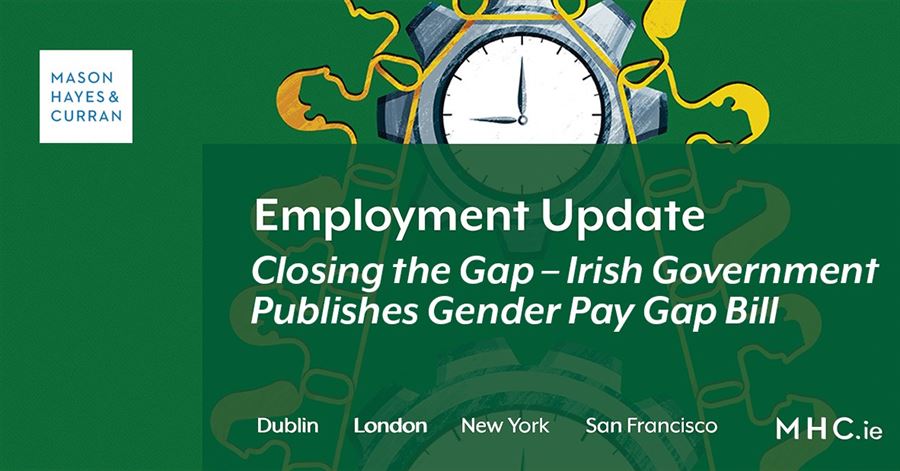
The long awaited Gender Pay Gap Information Bill 2019 was published by the Government in April 2019. A general outline of the Bill was originally published in June 2018 but progressed slowly due to Brexit. The Bill however has now been included as a priority bill for Spring/Summer Government programme and, as a result, is expected to be enacted before the end of 2019.
The Bill amends the Employment Equality Act 1998 to allow the Minister for Justice and Equality to make regulations requiring private and public sector employers, subject to employment thresholds, to report and publish information on any gaps in pay or bonuses between genders.
The regulations on reporting obligations will initially apply to employers with 250+ employees for the first two years. This threshold will slowly decrease, initially from 150+ employees, to ultimately employers with 50+ employees.
 Gender pay gap reports
Gender pay gap reports
Reports will have to include information including the difference between male and female pay as follows:
- The mean and the median hourly pay for (a) full time employees and (b) part time employees
- The mean and the median bonus pay, and
- The percentage of employees who receive (a) bonuses and (b) benefits in kind
In addition, the Bill requires employers to publish a statement explaining the reasons for any differences. Employers will also be required to provide details of the measures it has taken or proposes to take to reduce or eliminate the differences.
The Bill also allows for the Minister to make further regulations on the reporting obligation including:
- Restricting the classes of (a) employer, (b) employee and/or (c) pay to which the regulations will apply
- Prescribing how the number of employees that an employer has and pay is to be calculated
- Requiring reports on the percentage of employees in each of the four quartiles (lower, lower middle, middle and upper) who are male and female;
- Prescribing steps to ensure the personal data of employees have undergone psudonmyisation, and
- Prescribing the form of report/publication, the manner in which information is to be published, along with the frequency of publication (no more than once per year)
Although the regulations do not address the form these reports should take, a system similar to the UK is expected where employers publish their report on both their own website and on a government website dedicated to these reports.
Enforcement
The Bill provides for the appointment of designated officers to "investigate and prepare a report" on how an employer has complied with the obligation. The officers will also have powers to enter an employer's premises and require copies of relevant information.
Additional enforcement mechanisms will include a power for the Irish Human Rights and Equality Commission to apply to the Circuit Court for an order requiring an employer to comply with the legislation, and also, a right for employees to apply to the Workplace Relations Commission for an order requiring compliance. There is however no provision for compensation to employees or fines against an employer for non-compliance.
Conclusion
It is expected that these obligations will take effect from 2020 for the larger organisations. As a result employers should be preparing the groundwork for these reports.
These reports are expected to have significant interest from the media and the public. Potentially, the reports could have significant impact on brand awareness and employee relations. For this reason, we recommend employers conduct an early trial run to give it time to take measures or to understand any differences which arise.
For more information on the likey impact of reporting obligations will have on your organisation, contact a member of our Employment & Benefits team.
The content of this article is provided for information purposes only and does not constitute legal or other advice.





